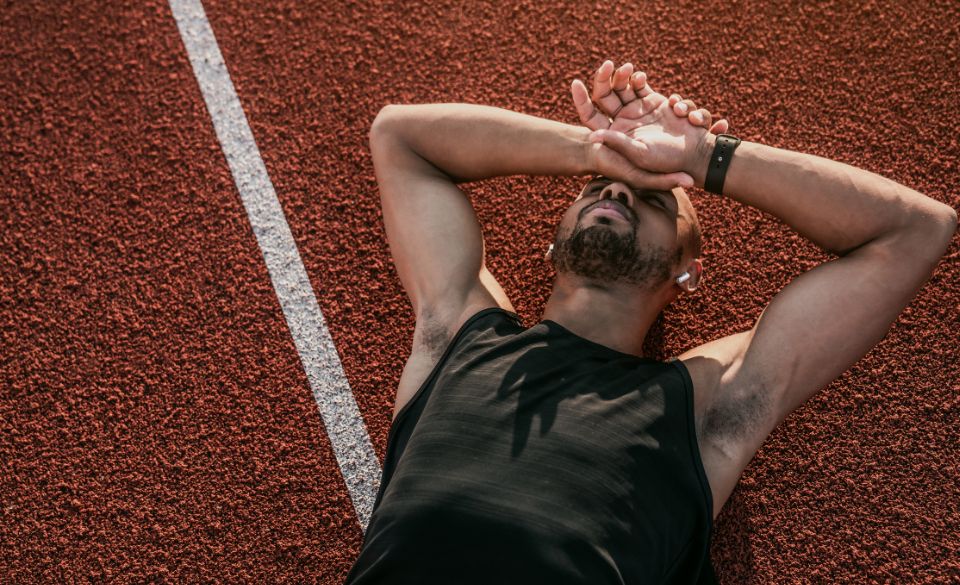
Feeling Sleepy After a Run: Exploring the Post-Exercise Slumber
Page Contents
Have you ever experienced a wave of drowsiness sweeping over you after a fulfilling run? If you’ve found yourself dozing off unexpectedly following your exercise routine, you’re not alone. Many individuals report feeling sleepy after a run, and it’s a phenomenon worth exploring. In this article, we delve into the possible reasons behind this post-exercise slumber and shed light on some intriguing studies conducted in this area.
The Biological Connection: Understanding the Role of Hormones
One possible explanation for feeling sleepy after a run lies in the complex interplay of hormones within our bodies. Physical activity, such as running, triggers the release of endorphins, also known as “feel-good” hormones, which induce a sense of relaxation and well-being. However, along with endorphins, our bodies also release other hormones like serotonin and dopamine during exercise.
A study published in the Journal of Sports Science & Medicine suggests that these hormones, particularly serotonin, play a crucial role in regulating sleep. Serotonin is a neurotransmitter that helps regulate mood, appetite, and sleep. During exercise, serotonin levels increase, promoting feelings of happiness and calmness. However, the subsequent drop in serotonin levels after exercise might lead to a feeling of sleepiness. This hormonal shift could explain why you feel tired post-run.
The Energy Depletion Theory: Unraveling the Connection between Exercise and Fatigue
Another plausible explanation for feeling sleepy after a run revolves around energy depletion. Physical activity requires substantial energy expenditure, with running being a particularly demanding exercise. When you engage in a vigorous run, your body taps into its energy reserves, burning glycogen stored in your muscles for fuel.
According to a study published in the European Journal of Applied Physiology, intense exercise can lead to a depletion of glycogen stores, which can trigger fatigue and feelings of sleepiness. This depletion of energy resources, combined with the exertion of a strenuous run, may result in a post-exercise slump. So, if you often feel sleepy after running, it could be your body’s way of signaling the need for rest and recovery to replenish its energy reserves.
The Circadian Rhythm Connection: Exploring the Sleep-Wake Cycle
Our sleep-wake cycle, also known as the circadian rhythm, plays a vital role in regulating our sleep patterns. The circadian rhythm is influenced by various factors, including exposure to light, eating habits, and physical activity. Regular exercise, such as running, can help regulate the circadian rhythm and improve the quality of sleep.
However, the timing of your run may impact how you feel afterward. If you engage in a late evening or nighttime run, it may interfere with your natural sleep-wake cycle, making it harder to fall asleep. Paradoxically, running earlier in the day can help enhance sleep quality by aligning your exercise routine with your body’s natural rhythm. So, if you find yourself feeling sleepy after running, consider adjusting the timing of your workouts and observe how it affects your sleep patterns.
Additional Studies Shedding Light on Post-Exercise Sleepiness
As researchers continue to explore the phenomenon of feeling sleepy after a run, several studies have provided additional insights into this intriguing topic. Let’s take a closer look at some of these studies and their findings:
1. A study published in the Journal of Sleep Research examined the relationship between exercise and sleep quality. The researchers found that engaging in moderate-intensity aerobic exercise, such as running, had a positive impact on sleep. Participants reported falling asleep faster and experiencing deeper, more restorative sleep after exercise.
2. Another study published in the journal Sleep Medicine investigated the effects of high-intensity interval training (HIIT) on sleep. HIIT involves alternating periods of intense exercise with short recovery periods. The study revealed that while HIIT can be effective in improving cardiovascular fitness, it may also lead to increased sleepiness post-workout. The researchers speculated that the intense nature of HIIT could contribute to a more pronounced fatigue response.
3.A review published in the European Journal of Sport Science explored the relationship between exercise timing and sleep. The review analyzed several studies and concluded that exercising in the morning or afternoon was associated with better sleep quality compared to evening workouts. The researchers suggested that the earlier timing allowed for a longer period of post-exercise recovery, reducing the likelihood of sleep disturbances.
4. In a study published in the journal Frontiers in Physiology, researchers investigated the impact of exercise on mood and sleepiness. They found that engaging in regular exercise, including running, was associated with improvements in mood and reduced feelings of sleepiness. The study emphasized the importance of establishing a consistent exercise routine to reap the long-term benefits on both physical and mental well-being.
While these studies provide valuable insights, it’s important to remember that individual experiences may vary. Factors such as fitness level, exercise intensity, and personal sleep patterns can all influence the post-run sleepiness phenomenon. Paying attention to your body’s signals and adapting your routine accordingly is key to finding the right balance between exercise and sleep.
Conclusion
Feeling sleepy after a run is a common occurrence, and understanding its causes can help you embrace it rather than be alarmed by it. The hormonal shifts triggered by exercise, the depletion of energy resources, and the impact on your circadian rhythm all contribute to this post-exercise slumber. So, the next time you find yourself yawning after a satisfying run, remember that it’s your body’s way of signaling the need for rest and recovery.
To make the most of your post-run sleepiness, create a soothing routine to transition from exercise to rest. Engage in calming activities such as stretching, deep breathing, or reading a book before bed to enhance the relaxation process. Consider creating a conducive sleep environment by ensuring your bedroom is cool, dark, and free from distractions.
Furthermore, listening to calming music or engaging in a brief meditation session can help promote a deeper and more restful sleep. It’s important to prioritize sleep hygiene and maintain a consistent sleep schedule, allowing your body to establish a healthy sleep routine.
While feeling sleepy after a run can be a natural response, if you consistently struggle with excessive fatigue or find it difficult to stay awake during the day, it may be worth consulting a healthcare professional. They can help rule out any underlying medical conditions that may be contributing to your excessive sleepiness.




